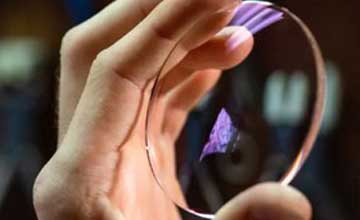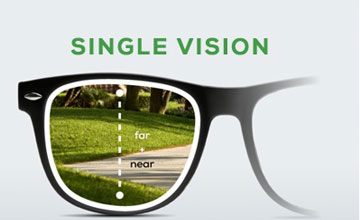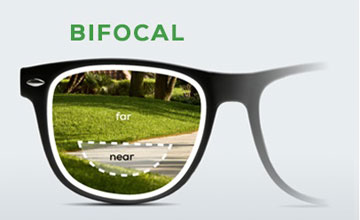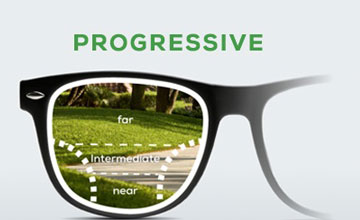FindIing the perfect pair of glasses is a wonderful journey that goes beyond just addressing vision needs. It's about understanding the individual, their unique style, and how they engage with the world. Here's a more emotionally resonant perspective:
At the heart of what we do in the optics center is not just about prescribing lenses; it's about crafting a vision experience that speaks to who you are. We believe in the power of sight, not just as a functional necessity but as a deeply personal expression of your identity.

Spectacle Lenses

Picture this: a pair of glasses that not only helps you see the world more clearly but also reflects your personality, your passions, and your style. Your eyes are the window to your soul, and we want to ensure that the frames you choose are the perfect complement to that beautiful view.
As we guide you through the process, we're not just looking at numbers on a prescription. We're delving into your lifestyle, your aspirations, and the little things that make you, you. Are you an adventurer, a bookworm, a creative spirit? Your lenses should enhance every facet of your life.
We understand that finding the right pair of glasses is a personal journey. It's about finding the frames that make you feel confident, comfortable, and uniquely yourself. When you put on those glasses, we want you to see more than just the world around you; we want you to see yourself in a new light.
And it's not just about the frames; it's about the care we put into every recommendation. From lens coatings that make your vision crystal clear to coatings that protect against scratches, we're thinking about your daily experiences and making sure your glasses enhance every moment.
So, let's embark on this journey together. Beyond correcting vision, we're here to celebrate your individuality, to help you find that perfect pair that not only improves your sight but also tells the world a little something about who you are. Your eyes deserve more than just functionality,they deserve an expression of your unique story.
Spectacle lenses play a crucial role in enhancing our ability to see the world around us, and they can evoke a range of emotions tied to the experience of clearer vision and self-expression.
Spectacle lenses are the optical components used in eyeglasses or spectacles to correct vision problems such as near-sightedness (myopia), farsightedness (hyperopia), astigmatism, and presbyopia. These lenses come in various types and materials to suit different vision needs and preferences. Here are some key aspects of spectacle lenses:



- These lenses have a single prescription power throughout the entire lens. They are used to correct either near-sightedness or farsightedness.
- Bifocals have two distinct sections, usually with the upper part for distance vision and the lower part for near vision. They are commonly used by individuals with presbyopia
- Trifocals have three sections, usually with distance, intermediate, and near vision segments. They are also designed for individuals with presbyopia.
- These are multifocal lenses that provide a smooth progression of prescription powers, eliminating the visible lines found in bifocals and trifocals. Progressive lenses are often preferred for a more natural transition between different viewing distances.
- Traditional material but heavier and more prone to breakage.
- Lighter and more impact-resistant than glass. Commonly used in eyeglass lenses.
- Even lighter and more impact-resistant than plastic. Often used in sports glasses and safety glasses.
- Thinner and lighter than regular plastic, suitable for stronger prescriptions.
- These lenses change their tint in response to the amount of light, becoming darker in bright sunlight and lighter indoors.
- Reduces glare and reflections, improving visual clarity and the appearance of the lenses.
- Protects the lenses from scratches, increasing their durability.
- Blocks harmful ultraviolet (UV) rays from reaching the eyes.
- Repels water, making the lenses easier to clean and resistant to smudges.
- Thinner and flatter than traditional lenses, providing a more cosmetically appealing appearance.
- Customized lenses designed to provide a wider field of vision and reduce distortions, especially in progressive lenses.
Blue light blocking lenses are designed to reduce the amount of potentially harmful blue light that reaches the eyes. Blue light is part of the visible light spectrum and is emitted by digital screens (like those on computers, smartphones, and tablets), LED lighting, and the sun. While not all blue light is harmful, prolonged exposure, especially from digital devices, has raised concerns about potential eye strain and disruption of sleep patterns.
Here are key points about blue light blocking lenses: - Blue light blocking lenses typically have a special coating that filters out or reduces the amount of blue light that enters the eyes. This can help alleviate eye strain, fatigue, and discomfort associated with prolonged screen time.
- Extended use of digital devices can contribute to digital eye strain, characterized by symptoms like dry eyes, headaches, and blurred vision. Blue light blocking lenses aim to mitigate these symptoms by reducing the impact of blue light on the eyes.
- Exposure to blue light, especially in the evening, can interfere with the body's natural sleep-wake cycle by suppressing melatonin production. Blue light blocking lenses may help in promoting better sleep quality by reducing the exposure to disruptive blue light before bedtime.
- Many blue light blocking lenses have a special coating applied to the surface of the lens.
- Some lenses are tinted with a yellowish hue, which helps in blocking blue light.
- There are also clear blue light blocking lenses that do not alter the colour perception significantly.
- Blue light blocking lenses are often recommended for individuals who spend extended periods in front of digital screens, including students, office workers, and gamers.
- Blue light blocking technology is available in both prescription and non-prescription (plano) lenses. Even if you don't need prescription glasses, you can still benefit from blue light protection.
- While some studies suggest that blue light blocking lenses can be beneficial, the overall effectiveness is still a subject of ongoing research and debate. Some argue that the evidence supporting the need for blue light protection is inconclusive.
When considering blue light blocking lenses, it's essential to discuss your specific needs with an eye care professional. They can provide guidance on whether these lenses are suitable for your lifestyle and can also address any existing vision concerns.
When selecting spectacle lenses, it's essential to consider your specific vision requirements, lifestyle, and personal preferences. An eye care professional can help determine the most suitable type of lenses for your needs and provide a prescription that accurately addresses your vision issues.

